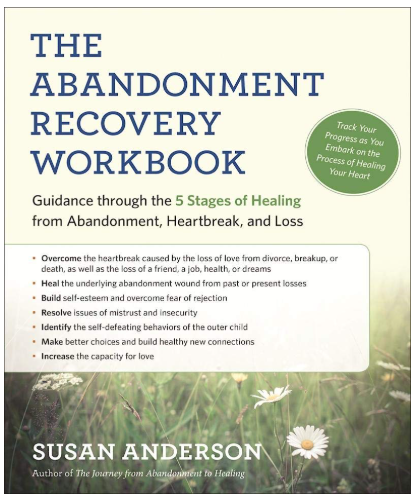It’s easy to prioritize everything and everyone else in our busy lives—but at what cost? Many people unknowingly engage in patterns of self abandonment, neglecting their own needs, emotions, and intuition in favor of pleasing others or meeting external expectations.
But what does it mean to abandon yourself, and how do you recognize the signs before it leads to burnout, resentment, or a complete disconnection from who you are? This post will help you identify the tell-tale signs, understand the impact self abandonment has on your life, and give you actionable steps to start reconnecting with yourself.
Stick around to the end, because I will also introduce my online program, “Growth Mindset for Success,” a powerful resource to help you build the confidence and balance you deserve.
Break Free from Self Abandonment with This Ultimate Guide to Recovery and Growth
What Does It Mean to Abandon Yourself?
Self abandonment occurs when you set aside your own needs, emotions, or values in order to meet the wants, expectations, or demands of others. This behavior often stems from unconscious patterns formed during childhood, serving as a way to gain love, approval, or a sense of safety in environments where emotions may have been invalidated or dismissed. For instance, as a child, you might have learned to suppress your feelings to avoid upsetting a caregiver. While this coping strategy may have felt necessary then, in adulthood it can manifest in avoidance of conflict, neglecting personal desires, or ignoring your mental and physical health. Over time, self abandonment erodes your self-identity, draining your energy and leaving you feeling unfulfilled and disconnected from your true self.
Recognizing and addressing self abandonment is essential for nurturing self-worth and well-being. Begin by tuning into your own emotions, consciously identifying your needs, and practicing assertive boundary-setting. It’s critical to challenge automatic behaviors rooted in self abandonment and replace them with habits that prioritize your well-being. Reconnecting with yourself takes time, but it is one of the most empowering paths you can take towards a life that feels authentic and fulfilling. Start the journey by identifying where you’ve been compromising yourself and take the first step to reclaim your sense of self.
Common Signs You’re Abandoning Yourself
Recognizing self abandonment requires a willingness to reflect honestly on your habits and emotional patterns. Here are some of the most common signs to look out for:
Neglecting Self-Care
- You skip meals, forgo rest, or ignore basic needs like hydration and sleep.
- You power through work without breaks or ignore signs of physical discomfort.
- You postpone personal routines that bring you joy, such as exercising or practicing a hobby.
Ignoring Boundaries
- You say “yes” to requests when your inner voice is screaming “no.”
- You allow others to dominate your time, energy, or mental space.
- You feel guilty when enforcing boundaries with friends, family, or coworkers.
Suppressing Emotions
- You tell yourself to “get over it” when you’re upset or hurt.
- You avoid expressing your feelings for fear of being judged or rejected.
- You dismiss your emotional reactions as “dramatic” or “not important.”
People-Pleasing
- You consistently put others’ needs above your own, even when it wears you down.
- You avoid conflict by agreeing with others, even if you disagree internally.
- You feel responsible for making sure everyone around you is happy.
Disregarding Intuition
- You ignore gut feelings or instincts because they seem inconvenient.
- You second-guess yourself constantly, relying on others to validate your decisions.
- You allow external opinions to overshadow your internal wisdom.
Each of these patterns might seem small or insignificant in isolation, but together, they form a picture of someone who consistently puts themselves last.
Discover Hope and Resilience: Learn Why ‘The Abandonment Recovery Workbook’ Is Your Key to Emotional Freedom
The Impact of Self abandonment
The effects of self abandonment ripple through your life, impacting your relationships, mental health, and overall well-being.
- Chronic Exhaustion and Burnout
Constantly ignoring your needs leads to mental and physical depletion, making it harder to function effectively or sustainably.
- Unhealthy Relationships
When you abandon yourself to meet others’ needs, you often attract relationships where your boundaries and feelings are not respected.
- Low Self-Worth
Over time, dismissing your own needs sends an internal message that you don’t matter. This can erode your confidence and self-esteem.
- Feelings of Resentment
Giving endlessly to others without receiving emotional support or validation in return can generate bitterness, ultimately undermining the relationships you’re working so hard to preserve.
Self abandonment doesn’t just harm you—it also limits the depth of connection and intimacy you can share with loved ones. When you’re not showing up as your authentic self, relationships lose their potential for mutual support and growth.
How to Start Reconnecting With Yourself
The good news is that you can break free from the cycle of self abandonment. Here are actionable steps to start prioritizing yourself:
1. Acknowledge Your Patterns
The first step toward change is awareness. Reflect on your habits and ask yourself:
- When was the last time I prioritized myself?
- What are the specific situations where I tend to abandon myself?
2. Reclaim Self-Care
Start by tending to your most basic needs:
- Eat nourishing meals regularly.
- Hydrate and rest when your body asks for it.
- Make time for activities that energize and fulfill you.
Even 10 minutes a day devoted to intentional self-care can make a tangible difference.
Reclaim Your Power: Learn How ‘The Abandonment Recovery Workbook’ Can Transform Your Healing Journey
3. Set and Enforce Boundaries
Visualize the line between your responsibilities and those of others. Practice saying “no” when tasks or requests infringe on your well-being. It’ll feel uncomfortable at first—but trust that the discomfort fades as you build confidence.
4. Validate Your Feelings
Accept your emotions without judgment. Whether you’re upset or elated, give yourself permission to feel without trying to push those feelings aside.
5. Tune Into Your Intuition
Practice listening to your inner voice by asking:
- What do I want in this moment?
- What decision feels most aligned with my values?
Trusting your intuition takes practice, but over time, it becomes a reliable guide.
6. Seek Support
Healing self abandonment isn’t a solo journey. Surround yourself with supportive people who encourage your growth and self-prioritization.
For extra guidance, consider enrolling in a program like “Growth Mindset for Success,” which offers expert strategies to help you rebuild your confidence, set boundaries, and prioritize your needs without guilt.
Grow Into Your Authentic Self
Overcoming self abandonment is a profound and empowering process that begins with recognizing its signs and understanding its roots in long-standing habits or past experiences. Self abandonment often manifests as neglecting personal needs, silencing inner desires, and prioritizing others at the expense of your own well-being. But it doesn’t have to define your future. By consciously challenging these ingrained behaviors, you can create healthier patterns that honor your voice and value your worth.
Prioritizing your needs and cultivating a deep connection with your inner self are essential steps toward authentic living. This transformation takes time and patience, but it’s a rewarding path that leads to greater self-trust, confidence, and fulfillment. Begin by exploring areas in your life where self abandonment has held you back, and take active steps to set boundaries that protect your emotional and mental health.
Take the first step today by prioritizing your growth. My online program, “Growth Mindset for Success,“ is a resource designed to help you rebuild your confidence, develop resilience, and make meaningful changes in your life. You deserve more than just survival—you deserve to thrive. Reclaim your sense of self and step into a life of balance, growth, and empowerment.







